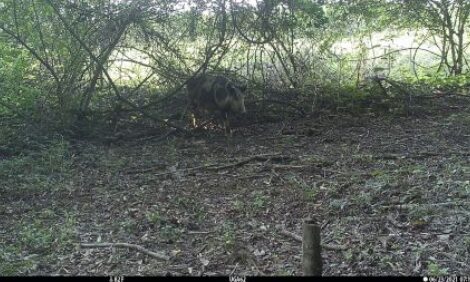



Trouw Nutrition IPVS research preview: 6 insights on science & nutrition to support pig health & profitability
Preview of IPVS posters and oral presentationsTrouw Nutrition, Nutreco’s animal livestock feed business line, is previewing findings from oral and poster presentations that will be presented during the International Pig Veterinary Society (IPVS) conference held 21-24 June in Rio De Janeiro, Brazil. The research presentations will focus on several swine production challenges ranging from safeguarding feed from African swine fever virus (ASFV) to helping more low-birthweight pigs achieve their genetic potential. Below is a glimpse into research that will be presented at IPVS.
Using feed additives to mitigate ASFV presence in feed
To help safeguard the swine industry from the potential spread of ASFV in feed or feed ingredients, two feed additives were developed and tested. The feed additives were tested for their ability to inactivate a strain of ASFV at various dilutions. Both additives demonstrated an acidifying effect and inactivated the ASFV when included at specific concentrations in the diet.
Yoghurt-based supplemental feeds to support low-birthweight piglets
Mortality can be up to 40% for piglets born weighing less than 1 kg, adversely affecting animal welfare and producers’ economics. While milk replacers are an option, they can be expensive and difficult to use on the farm. A trial evaluated how including a specifically formulated yoghurt in low birth-weight piglets’ diets affected survivability and bodyweight. Findings suggest that use of supplemental yoghurt could reduce culling rates and help more low-birthweight piglets reach their genetic potential.
Improving diet formulation practices to boost performance, economics
Just-weaned piglets experience several stressors that can lower feed intake and disrupt digestion. A study looked at a feed formulation system using dietary kinetics (Kinetio) to evaluate if it could generate a diet that would maintain piglet performance without relying on an expensive protein ingredient like spray-dried plasma. Results indicate that the formulation technology can be used to support performance and manage feed costs.
Stabilizing Porcine Reproductive and Respiratory Syndrome (PRRS) on a challenged farm
As PRRS transmits across a pig farm, it threatens sow productivity, piglet survival, and performance. Researchers on a PRRS-challenged farm with a continuous production system evaluated a dual-measure approach that included a live PRRS vaccine along with implementation of a batch management system. The trial was carried out at three sites on the challenged swine farm, and herds were closed for 40 weeks. The results demonstrate that it is possible to stabilize a PRRS disease outbreak on a farm with a continuous production system. Improvements from the two-pronged approach combining live vaccines and batch management included improved sow productivity, increased piglet survivability, and improved average daily gain.
A disease model sheds insights on stress-based Streptococcus suis
A trial evaluated a repeatable model to evaluate how early Streptococcus suis infection was affected by feeding stress. Both disease-challenged and non-challenged pigs were studied under conditions of stress and no stress. During IPVS, researchers will present insights from the model study that reveal how stress and feeding behaviour were affected by the serotype.
Assessing Streptococcus suis disease serotype prevalence, load, and antibody response
A trial compared serotype levels and antibody responses in pigs with a suspected Streptococcus suis (S. suis) infection against levels for healthy pigs. While pigs with symptoms of the illness had a higher prevalence of serotype 2 (SS2), sick pigs also tended to have a lower abundance of total S. suis presence than control group pigs. Analysis of prevalence levels and immunoglobulin responses offers additional insights regarding pigs’ susceptibility to S. suis disease.
Trouw Nutrition researchers will be at IPVS to discuss the studies and how science-based nutrition can help producers achieve production goals, support animal health, and protect their businesses. Remarking on the research that will be shared at IPVS, Luigi Moreira, Technical Manager Trace Minerals, said, “All phases of pig production present challenges for managing swine health, production performance, and producers’ economic objectives. These studies show that applying science-based nutrition to swine production can deliver nutritional strategies to help manage these challenges.”
For more information, please go to trouwnutrition.com or follow on LinkedIn.






